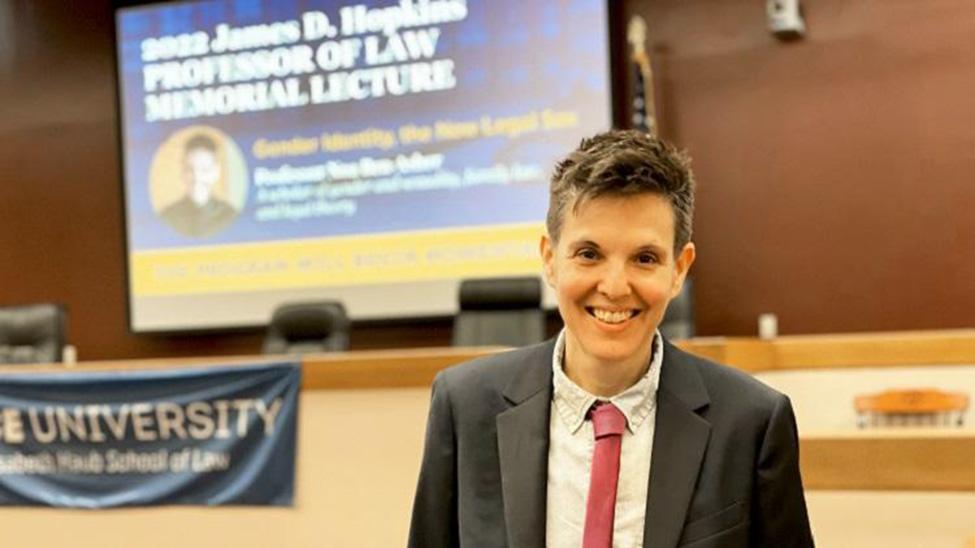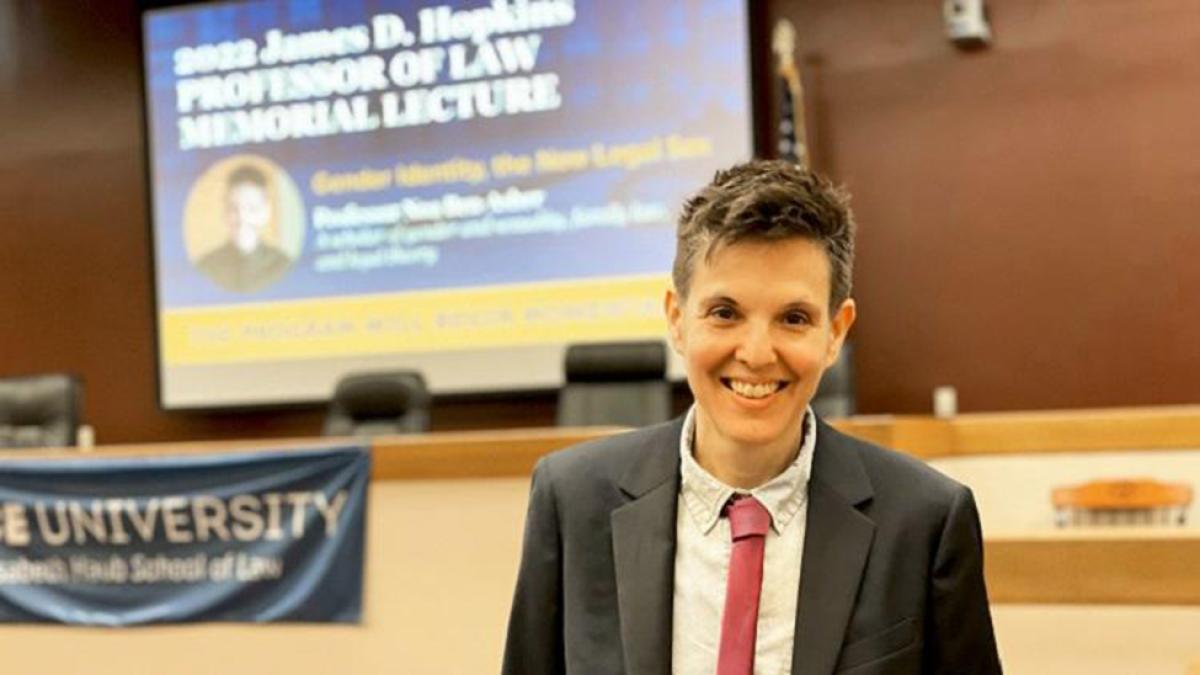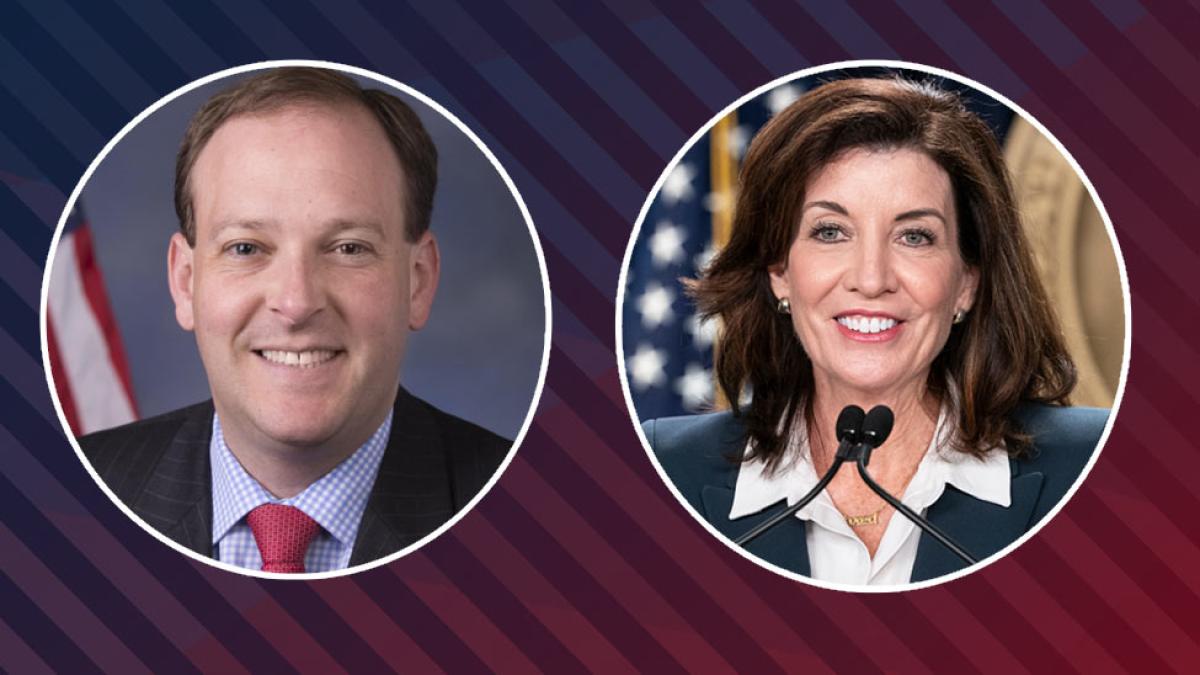
Jury selection to begin in New York City Trump Tower protest lawsuit
“If jurors can take time out of their busy days to sit in judgment, you can’t take time out of your busy day?” McLaughlin said of panelists’ potential sentiment. As far as the instruction goes: “I don’t think it’s going to carry much weight. Jurors, inside themselves, are going to resent the fact. Who does he think he is? He’s not going to show up to court?”
Trump Faces Possible Devastating Civil Trial Beginning Monday
And if the jury in this case does what Bronx juries tend to do, Trump might feel significant consequences, legal veterans tell the Guardian. “I’m a civil rights lawyer. If I can get a case into the Bronx, I’ll move heaven and earth,” said Randolph McLaughlin, Pace University law school professor and co-chair of Newman Ferrara LLP’s civil rights practice group. “Bronx juries, they engage in Robinhood-ism. They take from the rich and give to the rest of us – their verdicts are always generally right at the ceiling.” “There’s no limit in the Bronx. They love to give money to the people,” McLaughlin said. “Donald Trump, as much as he is loved in certain corners of the country, he is not loved in the Bronx.”
What to Watch For in the Oct. 31 Supreme Court Hearing on Race in College Admissions
- Read more about What to Watch For in the Oct. 31 Supreme Court Hearing on Race in College Admissions
The U.S. Supreme Court will hear oral arguments on October 31 in Students for Fair Admissions v. University of North Carolina and Students for Fair Admissions v. Harvard, the latest cases to look at the legality of the limited use of race and ethnicity in college admissions. Pace University President Marvin Krislov and ACE General Counsel Peter McDonough join host Jon Fansmith for a preview of the hearing and what to watch for. Krislov was vice president and general counsel at the University of Michigan during the landmark 2003 admissions case Grutter v. Bollinger.
Does It Matter if Our Universities Look Like America?
President Krislov pens a column about the Supreme Court’s hearings on race in the college admission process as justices consider abolishing the practice...
Writing for the majority in the 2003 Supreme Court decision Grutter v. Bollinger, Justice Sandra Day O’Connor looked back at precedent: “It has been 25 years since Justice Powell first approved the use of race to further an interest in student body diversity in the context of public higher education.”
The Inherent Contradictions in the Affirmative-Action Debate
Not too long after the 2006 ballot initiative, Marvin Krislov left Michigan to become the president of Oberlin College, in Ohio, and later took the same role at Pace University, in New York City—a school that is less than fifty per cent white and admits more than eighty per cent of its applicants. Working at a school that’s not hyper-focused on élite admissions has not changed his belief in the importance of diversity. But his latest gig has changed his perspective. “I wouldn’t say that I’m running away from the notion that affirmative action can be an important tool for college admissions,” he said. These days, though, he spends more time thinking about everything that happens before kids apply to college, and how debates about diversity in higher education have obscured the many barriers that students face in getting to college in the first place. “The majority of Americans are not going to go to the University of Michigan or Harvard,” Krislov said. “And that’s just fine.”
Professor Noa Ben-Asher delivers 2022 James D. Hopkins Professor of Law Lecture on Gender Identity
Professor Noa Ben-Asher delivered the James D. Hopkins Professor of Law lecture on Wednesday, October 26, on "Gender Identity, the New Legal Sex." Dean Horace Anderson appointed Professor Ben-Asher as the James D. Hopkins Professor of Law for the 2021–2023 term. During the holder's term, the James D. Hopkins Professor delivers a lecture that is open to the entire law school community and members of the public.


Professor Noa Ben-Asher delivered the James D. Hopkins Professor of Law lecture on Wednesday, October 26, on "Gender Identity, the New Legal Sex (YouTube)." Dean Horace Anderson appointed Professor Ben-Asher as the James D. Hopkins Professor of Law for the 2021–2023 term. During the holder's term, the James D. Hopkins Professor delivers a lecture that is open to the entire law school community and members of the public.
"What’s gender? What’s sexuality? What does it mean to be gay?" Professor Ben-Asher opened their Hopkins lecture with these questions. During the well-attended lecture, Professor Ben-Asher connected to the audience by sharing personal experiences as related to turning points in both their own understanding and the world’s understanding of the distinction between gender and sexuality. Professor Ben-Asher continued their lecture, discussing how “legal sex has changed.” They continued that “the way in which different areas of law, lawmakers, courts, and policy makers are shifting toward a new definition of legal sex: gender identity.”
During Professor Ben-Asher’s lecture, they first briefly described how the definition of biological sex has changed from the end of the 19th century to the mid-20th century. During this first part, Professor Ben-Asher noted that legal sex was understood, until around mid-twentieth century, as physical sexual difference between males and females. However, by 2022, the overwhelming trend in US law is toward framing legal sex as gender identity—defined as “an individual’s own internal sense of whether they are a man, a woman, or nonbinary.” Relatedly, Professor Ben-Asher went through a three party taxonomy on how legal sex has changed accordingly. Next, the current backlash against transgender people was discussed. Finally, Professor Ben-Asher offered their critique and suggestions regarding the future definitions of legal sex.
In the last part of their lecture, Professor Ben-Asher astutely noted that, today, “liberalism and rights have become entangled in science and medicine” and there is a price tag that this entanglement comes with. “The heavy reliance of gender identity advocates on medical science has been productive for the rights and recognition of gender and minority, but it has come with a cost and my concern is that by over relying on medical science and expertise we do not engage in the debate on sexual morals as it is emerging in front of our eyes.” Professor Ben-Asher observed that, “the debate is in the domain of sexual morality, no matter where you fall on it.”
Professor Ben-Asher concluded their lecture by stating that, “when we talk about gender and sexuality we are in the domain of morality, life, and death, which we must approach not with pride, certainty, and science, but with humility, empathy, and kindness.” After the lecture, audience members had an opportunity to comment and ask questions. Many members of the audience, including faculty members and law students, participated and asked thoughtful and engaging questions. In response to a question on the battleground that has become boards of education over topics such as gender and identity teachings, Professor Ben-Asher responded that “we need to educate” to have positive future outcomes.
Professor Noa Ben-Asher joined the Haub Law faculty in 2009. They teach torts, family law, and sexuality, gender & the law. Prior to joining the faculty at Haub Law, Professor Ben-Asher was in the Associate-in-Law program at Columbia Law School (2007–2009). Prior to their associateship, they were a Williams Fellow at the University of California–Los Angeles (UCLA) School of Law (2006), where they taught at the department of LGBT studies. From 2004–2005, they practiced in the litigation department of Proskauer Rose LLP in New York. They are a graduate of New York University School of Law (LLM 2001; JSD 2006), and Bar-Ilan University School of Law (LLB 1999). Professor Ben-Asher was a visiting professor at Harvard Law School for the academic year 2014–2015, and a visiting professor at Columbia Law School for the academic year 2015–2016. Additionally, their scholarship is frequently published in prestigious journals, including Tulane Law Review, Columbia Journal of Gender and the Law, and others. They also have a forthcoming book, Secular-Christian Social Justice, to be published by NYU Press.
The title of James D. Hopkins Professor of Law is awarded to a member of the faculty for a two-year term in recognition of outstanding scholarship and teaching. The designation is among the Law School’s most significant faculty honors. The Hopkins Professor is selected by the Dean in consultation with the former holders of the Hopkins Chair. The prior James D. Hopkins Professor of Law for the 2019–2021 term was Professor Leslie Y. Garfield Tenzer.
Watch the 2022 James D. Hopkins Memorial Lecture below.
Live Updates: Hochul and Zeldin Meet in Governor's Debate in New York
The first and only debate in the election for New York’s governor is scheduled to begin at 7:00 p.m. Tuesday at Pace University in New York City.

Seen & Heard: Gubernatorial debate tonight at Pace
Pace Hosts Governors Debate
Pace University will live-stream the first and only debate for candidates Governor Kathy Hochul and Representative Lee Zeldin tonight starting at 7:00 p.m. for one hour on NY1. The debate will be moderated by Susan Arbetter and Errol Lewis. There will not be a live audience.
Hochul and Zeldin clash in Spectrum News debate
Republican candidate for New York governor Lee Zeldin and Democratic incumbent Gov. Kathy Hochul debate on Tuesday, October 25, 2022 at Pace University in New York.
Watch the Full Spectrum News Governor's Debate
Gov. Kathy Hochul and Rep. Lee Zeldin met Tuesday at Pace University in Manhattan for their first and only scheduled debate for governor ahead of the Nov. 8 election.